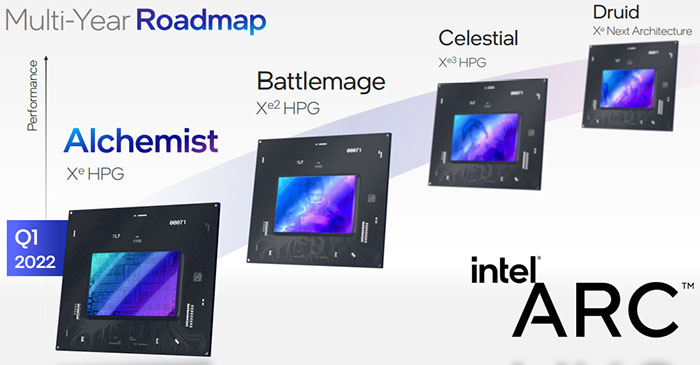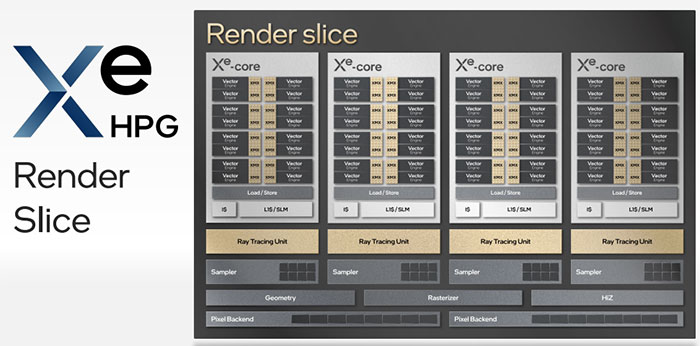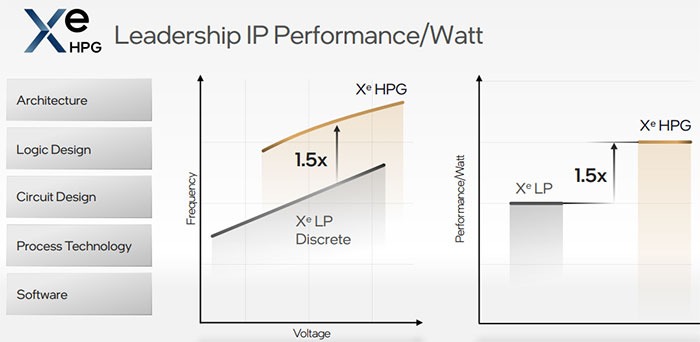Last week, Intel's data deluge shared during its Architecture Day was welcome but certainly needed time to digest. The presentation was over two hours long, and one of the PDFs we received from our contacts at Intel was 195 pages long. As the dust is still settling, Intel VP and GM of Client Graphics Products and Solutions, Roger Chandler (also a presenter in the video) has shared a carefully drawn outline of Intel Arc high-performance graphics, dubbed The Next Chapter in our Graphics Story, on publishing platform Medium.
Chandler's post is quite comprehensively covered by the HEXUS articles last week; Intel provides sneak peek at Xe HPG and Xe HPC GPUs, and Intel XeSS upscaling technology demonstrated and discussed. However, by intention or happy accident, we get a little more insight into the upcoming lineup, their capabilities, and the all-important software that brings out the best of the hardware.

In the Medium post, I found it most useful that Chandler highlighted Intel's intentions to stick with Intel Arc as a going concern for multiple generations. It looks like, after the initial splash made by Arc Alchemist with Xe HPG in Q1 2022, we will get at least four years of updates with Druid based on Xe Next Architecture at the end of the roadmap as far as it has been shared.

Chandler also took time to recap the way in which Arc Alchemist graphics card SKUs will be devised, the capabilities of the underlying architecture, and again highlighted the qualities of XeSS.
Probably the most interesting part of Chandler's blog concerned software, as it touched upon new information. Seasoned HEXUS readers will be all too aware of the importance of drivers, with both red and green teams having been though rough patches, lessening the appeal of great hardware in the past. So it is important to know Intel won't stumble in this regard.

Last week, Lisa Pearce seemed to be assuring us that all was well on the software front, from multiple angles. Chandler adds some more info, saying that Intel's close work with Microsoft over the last three years with DX12U have been rewarding, and hinting that the blue team could become a technology leader in some areas.
Last but not least, Intel has rationed overclocking ability with its CPUs in recent years – limiting the ability to OC processors, with locked multipliers in all but its 'K' series. It appears to be the case that Intel Arc will storm forth without any such brakes on enthusiast tinkering. "We’re even integrating overclocking controls into the driver UI to give enthusiasts the tools they need to push the hardware to the limit," wrote Chandler on Medium.













